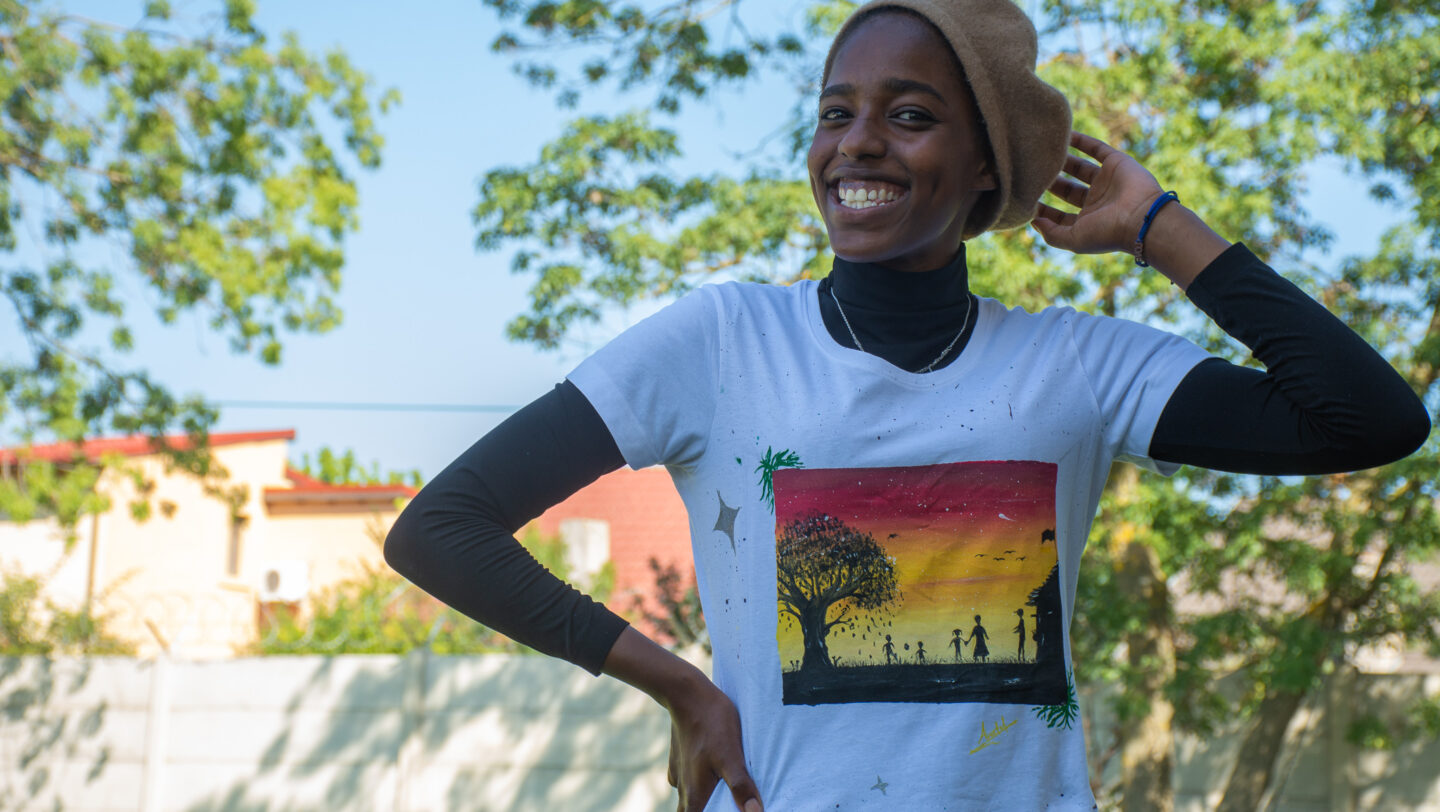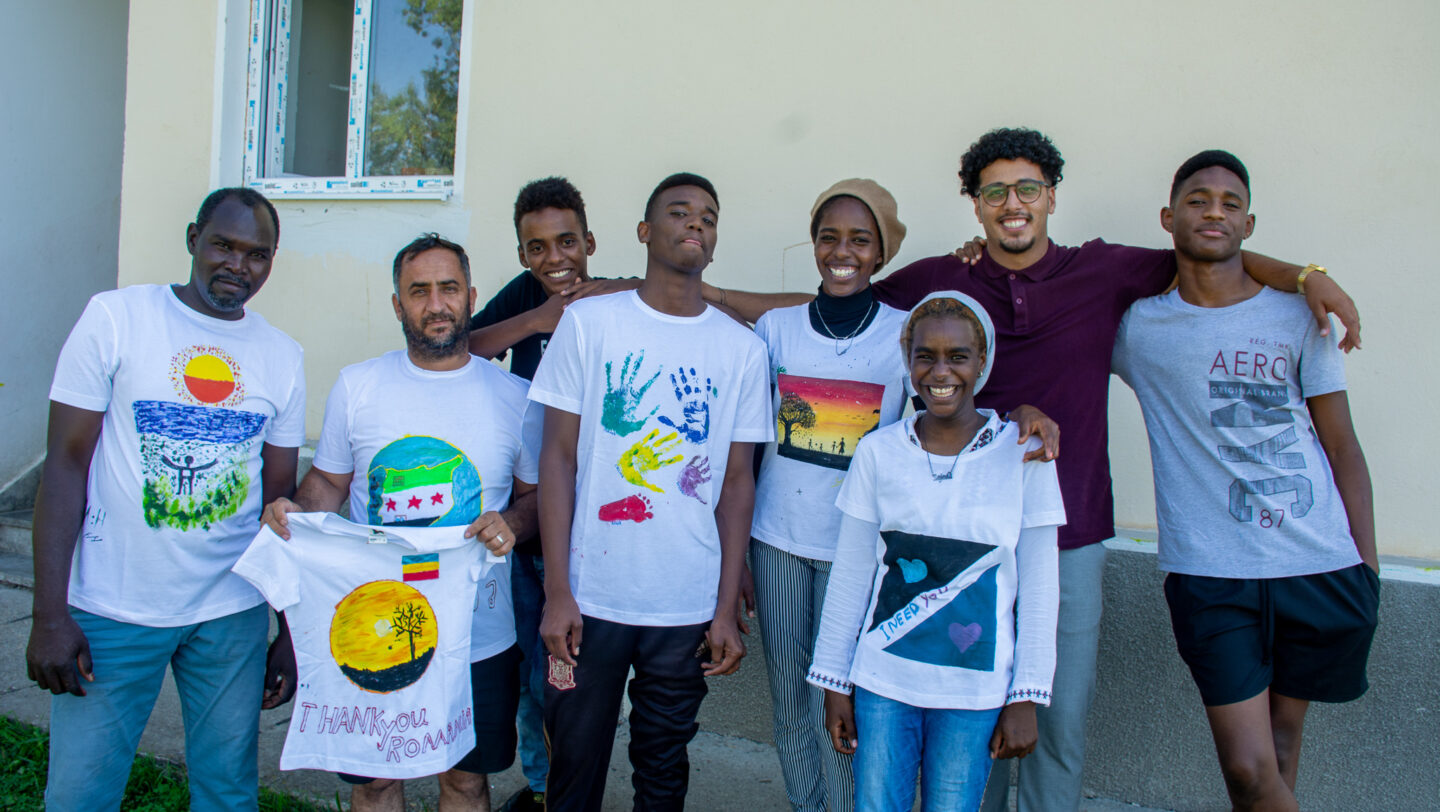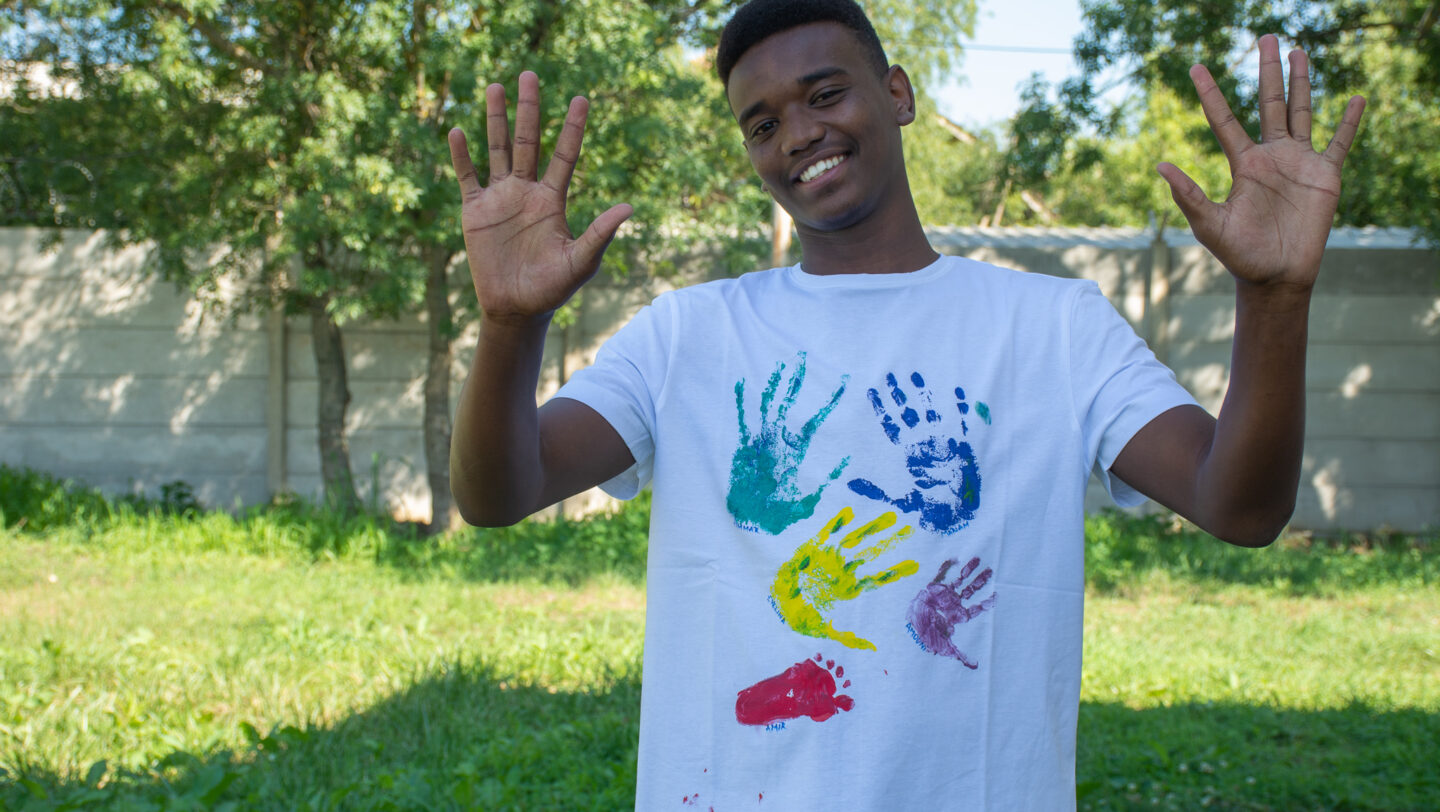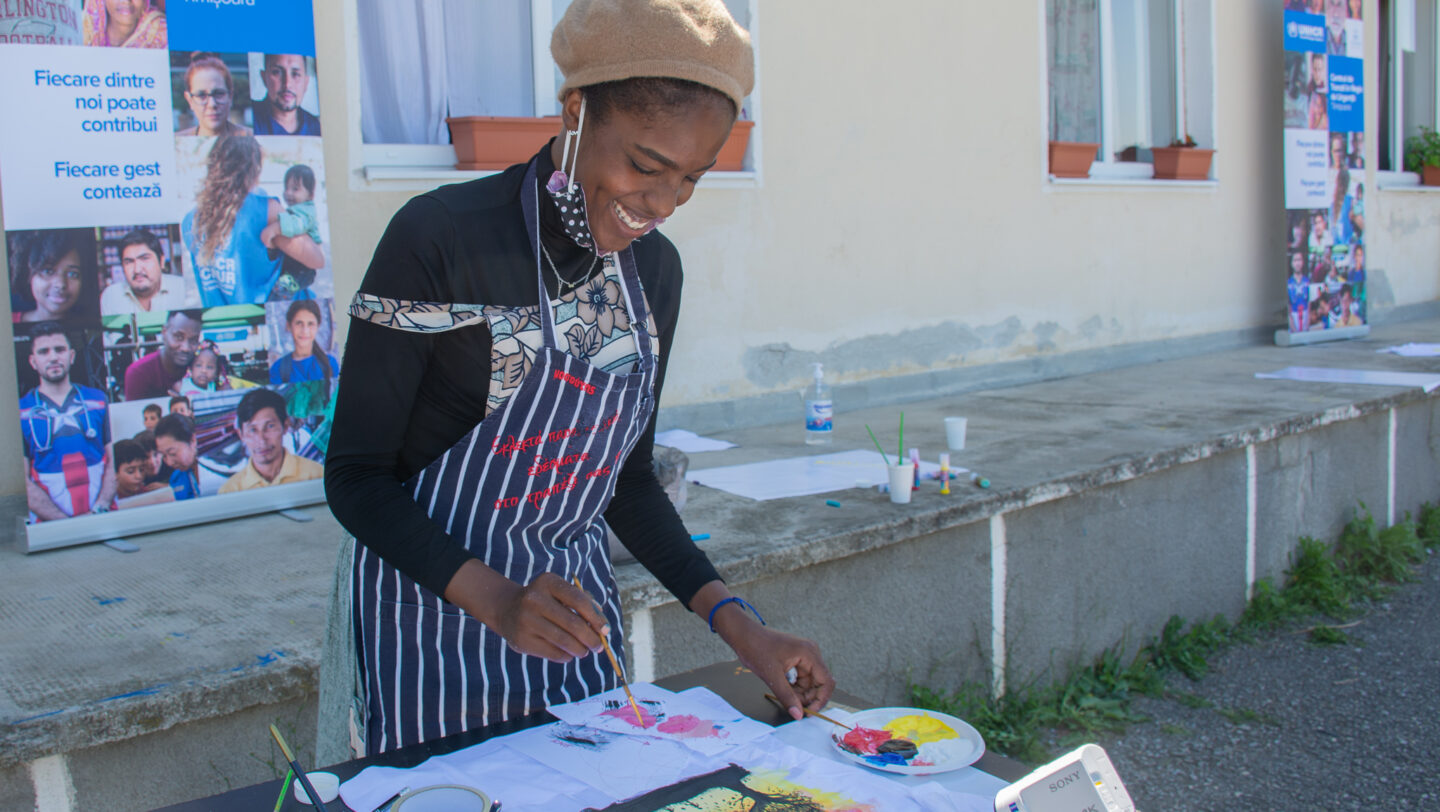Ameira Hasaballah, originally from Libya, is painting a T-shirt. She uses vivid yellows and reds to depict a majestic tree with strong roots. “When I left Libya, my father told me I needed to be strong for my kids, as strong as the roots of a tree,” she says.
Ameira, 34, is taking part in an art workshop, organised by UNHCR and its partner AIDRom (the Ecumenical Association of Churches from Romania), to comfort and encourage refugees through the COVID-19 pandemic.
When a group of 45 refugees evacuated from Libya arrived at the Emergency Transit Center (ETC) in Timișoara in March 2020, everyone thought they would be spending no more than a couple of months there before moving on to new homes in countries accepting them for resettlement.
But the pandemic and ensuing lockdown forced a change of plan and delayed their departure. Knowing how disappointed and frustrated the refugees would be feeling, UNHCR Romania and AIDRom stepped in to protect their health and keep their spirits up.
Art is a form of coping with all the changes in their lives, especially in the context of the pandemic. It helps amplify their emotions and keeps their hopes alive
On a sunny morning, staff at the ETC prepare for the workshop, which will be led by Romanian artist Livia Mateiaș. Tables are lined up in the yard and colourful painting sets and white T-shirts are laid out. Refugees gather round. Unable to contain their enthusiasm, the children immediately start drawing on large sheets of paper.
The past months have been difficult for the refugees. To help them pass the time and reduce anxiety, UNHCR proposed various activities, from sports to language classes. Now Livia invites them to shape their thoughts and emotions on T-shirts, as art can be healing.
Ameira has been through some traumatic experiences. Born in war-torn Libya, she married in 2014 and moved with her husband to Sudan. But the couple found nothing but insecurity there.
In 2018, her husband set off by sea to try and find a new life in Europe. “I never heard from him again,” she says. “I looked everywhere but there was no sign of him. He was declared a missing person. My life was crushed.”
Ameira returned to Libya, eight months pregnant with her second child. Her two sons, Shareef, 5, and Ameer, one, are with her now at the ETC.
When circumstances allow, they will start a new life in Norway. “I will have a chance of normality,” she says. “I am looking forward to finally settling in Norway, where they have real rights for women and children.”
When the workshop ends, a dozen painted T-shirts are drying on the grass, carrying the dreams of the refugees into the future
“It is so touching to see refugees using art to make themselves heard,” says Nisreen Rubaian, UNHCR’s Representative in Romania. “Art is a form of coping with all the changes in their lives, especially in the context of the pandemic. It helps amplify their emotions and keeps their hopes alive.”
Samuel Tekie, 31, from Eritrea, is also taking part in the workshop. He was a student in the 11th grade when he left home to embark on a long and arduous journey.
“My family was poor,” he says. “I had to quit school and try to find a job but I was not successful.”
Out of school and unemployed, he faced the prospect of army conscription. He moved to Sudan but had no better luck finding work there, so he continued on to Libya.
“I spent 21 days travelling through the Sahara, with little food or water, under the smugglers’ surveillance, only to reach Libya and be confined in a detention warehouse,” he says. “It was only in 2019 that I managed to get registered with UNHCR and was given the chance to find safety in Europe.”
Like Ameira, Samuel will eventually go on for resettlement in Norway.
The painting on his T-shirt speaks for itself — a bright yellow sun rises above a grey mountain. “For many years, my life got stuck behind this high mountain of struggles but now the sun is rising and there is finally hope.”
When the workshop ends, a dozen painted T-shirts are drying on the grass, carrying the dreams of the refugees into the future.
For artist and teacher Livia, it is a gratifying sight. “I came here with joy to meet new people,” she says. “I found talented artists and one universal message — love and peace for all.”
Share on Facebook Share on Twitter










